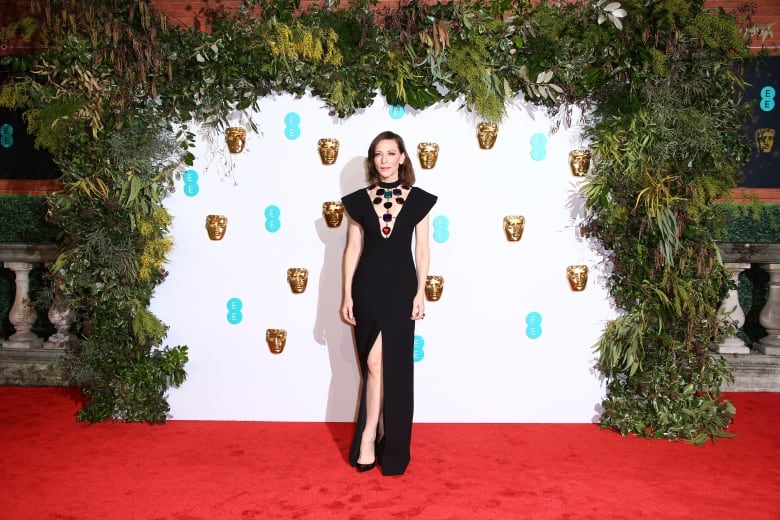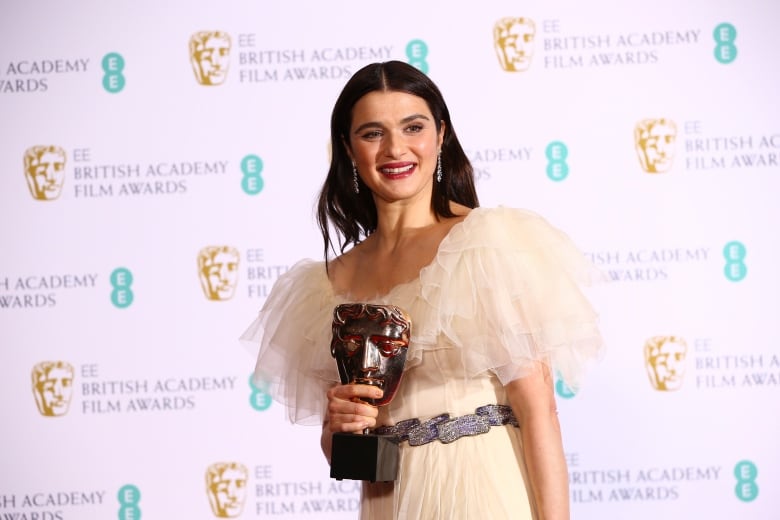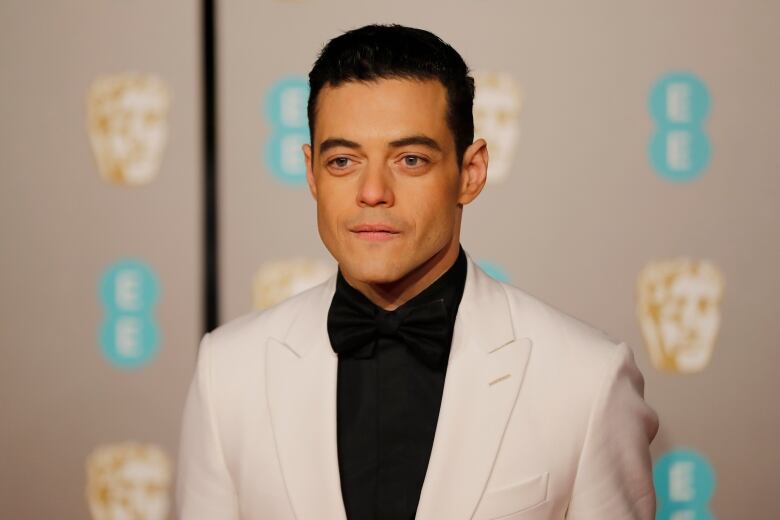Royal drama The Favourite was crowned the year's best U.K. film at Sunday's British Academy Film Awards, in front of an audience st...
Royal drama The Favourite was crowned the year's best U.K. film at Sunday's British Academy Film Awards, in front of an audience studded with Hollywood stars and real British royalty.
Yorgos Lanthimos' period drama has a total of 12 nominations for the U.K. equivalent of the Oscars. Star Olivia Colman has already won a Golden Globe for her performance as Queen Anne in The Favourite and is favoured to take the best-actress prize
The 18th-century queen's distant relative, Prince William, and his wife, Kate, Duchess of Cambridge — wearing a white, off-the-shoulder Alexander McQueen dress — joined Amy Adams, Bradley Cooper, Cate Blanchett, Viola Davis, Timothee Chalamet and other stars for a black-tie ceremony at London's Royal Albert Hall.

Absolutely Fabulous star Joanna Lumley was the gently risqué host.
The Favourite lived up to its title, snapping up both the outstanding British film trophy and a second prize for its opulent production design early, its larger-than-life hair and makeup and the supporting actress performance of Rachel Weisz.
Weisz, who plays the queen's confidante and rival Sarah Churchill, said she "had the greatest luck in that I played opposite two of the most glorious women" — Colman and Emma Stone.

Production design winners Fiona Crombie and Alice Felton dedicated their award to "every woman and working mother who keeps it together and makes it happen." The Favourite also took the trophy for best original screenplay.
"Thank you for celebrating our female-dominated movie about women in power," said Deborah Davis, who won the award alongside co-writer Tony McNamara.
Other winners included Spike Lee's BlacKkKlansman for best adapted screenplay, the Bradley Cooper-directed A Star is Born for music and Alfonso Cuaron's lush black-and-white Roma for cinematography.
Mahershala Ali was named best supporting actor as a concert pianist touring the 1960s Deep South in Green Book.

The awards, known as BAFTAs, will be scoured for clues to who might triumph at Hollywood's Academy Awards on Feb. 24, in what's shaping up as an unpredictable awards season.
Colman is up against Glenn Close, who took Screen Actors Guild and Golden Globe awards for The Wife. The other best-actress nominees are Lady Gaga for A Star is Born, Viola Davis for Widows and Melissa McCarthy for Can You Ever Forgive Me?
"I feel like I'm in a fever dream," said McCarthy, of recognition for the offbeat film, based on the story of a real literary forger.
Her Can You Ever Forgive Me? co-star Richard E. Grant has secured both BAFTA and Oscar nominations for his performance as an affable rogue.
"I've been working for 40 years, I've never won anything," said Grant, who called this awards season "the ride of my lifetime."

Rami Malek won the best actor prize for his performance as Freddie Mercury in Bohemian Rhapsody.
Malek said it was "extraordinary" to be recognized for his performance as the late frontman of Queen.
Best-picture nominees are The Favourite, Roma, A Star is Born and two very different movies about racism in America: Green Book and BlacKkKlansman.
British academy voters have all but ignored superhero blockbuster Black Panther, which is up for best picture at the Oscars and took top prize at the SAG awards last month. It has a single BAFTA nomination — for visual effects.
Spotlight on abuse in industry
The red carpet glamour is unfolding against a backdrop of soul-searching and scandal about abuses in the entertainment industry.
Last week, the British academy suspended director Bryan Singer's nomination as part of the team behind Bohemian Rhapsody after four men accused him of sexually assaulting them when they were minors.
BAFTA said the alleged abuse was "completely unacceptable" and incompatible with its values. Singer, who was fired while Bohemian Rhapsody was in mid-production in 2017, denies the allegations. The film itself is still nominated.
At last year's BAFTAs ceremony, many women wore black as a symbol of opposition to harassment, abuse and inequality in the wake of allegations against movie mogul Harvey Weinstein.
Female representation up, still lagging
A British wing of the Time's Up campaign founded last year is vowing to keep the campaign going and to double the number of women in film, on and offscreen.
The number of female nominees is up this year, but there has been criticism of the academy's failure to nominate any female filmmakers in the best-director category. Only one woman has ever won the directing prize: Kathryn Bigelow for The Hurt Locker in 2010.
BAFTA chair Pippa Harris said only 10 per cent of films entered for the awards were directed by women.
"It needs to be 50 per cent," said Harris, who called the gender imbalance an industry-wide problem.
"There has been a traditional problem with getting females to be noticed in terms of their TV work and then get picked up to make feature films," she said. "Men seem to find that transition much easier."
by The Associated Press via CBC | Top Stories News





COMMENTS